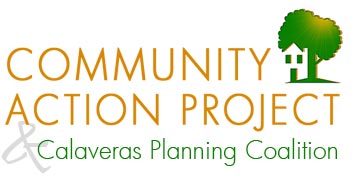project focused on sustainable land use planning.
Find out more about us >>
Rural communities still have to fight off extremists
The article below is from High Country News ( http://www.hcn.org/wotr/rural-communities-still-have-to-fight-off-extremists ). Thank you to the “Friday Planning News” folks for this article.
The fiery rhetoric that periodically consumes rural communities in the West is smoldering again. Some environmentalists berate those of us who try to collaborate to solve contentious public-lands issues; meanwhile, conspiracy theorists spread scary stories about the U.N. subverting our government through its “Agenda 21.”
The discord has emerged in several communities dependant on natural resources –– places like Salmon, Idaho; Swan Valley, Mont.; Hayfork, Calif.; and Enterprise, Ore. But these communities have changed since the timber wars and Sagebrush Rebellions of the 1980s and ‘90s. The winner-take-all mentality of those days wasn’t especially kind to them, and in the past decades, local people have worked hard to build what Courtney White, cofounder of the Quivira Coalition, calls the “radical center.”
Or as Melanie Parker of Montana’s Swan Valley puts it, “We are not the voices of industry, and we are not the voices of environmentalism. We represent the third way, and we are rapidly becoming the new way of doing business in the West.” Parker was asked to explain this approach to Congress in 2010, at a House Subcommittee hearing titled: “Locally Grown: Creating Rural Jobs with America’s Public Lands.”
The goal, she said, was finding lasting solutions that benefit both the environment and the community, whether that meant boosting stream flow in chinook salmon-spawning territory crossing a ranch in central Idaho or improving forestry conditions in southwestern Montana and thereby putting local contractors to work. Forestry collaboratives across the West have been working on that approach, with members that include county commissioners, economic development agents, forestry businesses, environmentalists, fire departments, wildlife advocates, sportsmen and anglers, and other community-based organizations.
This new way of doing business requires a high investment in building and maintaining relationships — including relationships with people who don’t like each other much. The results can be gratifying, but they are not instantaneous. Replacing the usual boom-and-bust cycles with consistent stewardship of natural resources can take years. And along the way, collaborators have to withstand the criticism of people all het up about Agenda 21, along the attacks of those who should know better, such as environmentalists who accuse collaborators of being sell-outs. Or as Missoulian columnist George Ochenski damned it recently, “Collaboration is an industry-friendly strategy to neuter the environmental movement.”
Meanwhile, the notorious Agenda 21 really does exist, but it is simply a white paper issued by the United Nations 20 years ago that warned that economic disparity and deteriorating ecosystems were increasing tensions in the world. Now, Agenda 21-ophobes, feeding on a daily diet from the John Birch Society and similar organizations, charge that members of the community-based conservation movement are really zombies programmed to depopulate the rural West, employing such weapons as greenbelts and “smart” power meters. These critics also denounce the very words “consensus,” “collaborate” and worst of all, “sustainable.”
The two extremes fan one another’s flames. Their shared belief in the lack of intelligence and independence of their rural neighbors is the oxygen that keeps the conflagration alive. They warm their hands on one another’s fires as they do their best to discredit and destroy the bonds small-town residents have with one another. The rural West may not be a utopian vision of perfect harmony, but the ancient art of neighborliness still persists in these sparsely populated places. So if the extremists want to spend their time consuming that energy, we’re happy to let them do it. We have learned not to chase every fire.
Our energy will be spent here instead, on the ground in our communities: opening fish passages, tending the forests and range, repairing roads, clearing trails and learning from the land and from each other. Our work isn’t easy, and it won’t be quick. America is hard work. Democracy is hard work. We think we are up to it. What the Third Way can see that our detractors can’t is that we’ve found a better, more effective way than the gridlock and endless arguing of the past.
The notions that we can sacrifice the land for the benefit of the people, or sacrifice people to the conservation of land are equally ludicrous to us. We dare to imagine that our work might result in revitalized rural communities, but we don’t waste a minute dreaming that such a future will be handed to us by big business or big government. We know that such change is possible, as it always has been, because of the thoughtfulness, ingenuity and courage of our rural neighbors.
Gina Knudson is a contributor to Writers on the Range, a service of High Country News (hcn.org). She lives in Salmon, Idaho.

